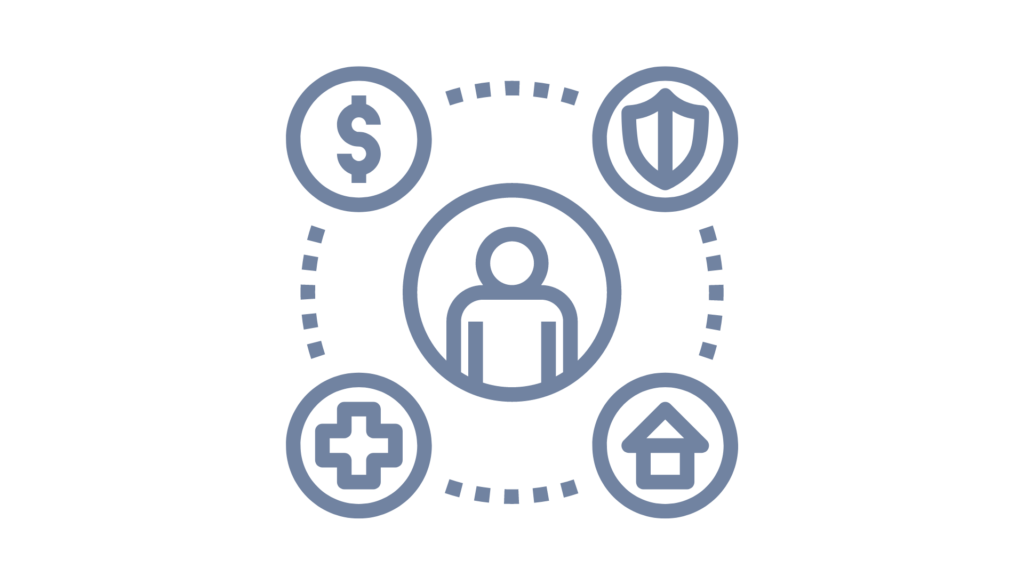

If you suffer from a physical and/or mental impairment, or a combination of both, and that impairment is so severe that you are unable to engage in any full time employment, you may be entitled to a disability benefit from the Social Security Administration. That benefit may be Social Security or it may be Supplemental Security Income (i.e. SSI), or it may be a combination of both.
Social Security is available to a disabled individual who has a work history and who has earned enough credits (referred to as “quarters”) to be “insured” for disability.
Eligibility for Social Security is not dependent upon wealth and a person can even be employed while receiving Social Security without any loss of benefits so long as wages do not exceed a certain amount per month.
The monthly benefit is determined by an individual’s past earnings and can vary from less than $500 to more than $2,000.
After receiving benefits for 24 months, a recipient becomes eligible for Medicare health coverage.
SSI is available to a low-income disabled individual and there is no “insured” requirement and no need to establish a work history. However, income must be limited and assets must not exceed $2,000 in value.
If an individual is receiving financial assistance from anyone in any form (e.g. free room and board) that will be counted as income and will reduce the monthly benefit.
The maximum monthly benefit in 2022 for an individual is $872.25 and that will be reduced by any other income that a person may have, although there are some exclusions.
Eligibility for SSI includes eligibility for Medicaid health coverage and there is no waiting time for this coverage to take effect.
Applications must be in writing and may be filed at a Social Security District Office or online.
It may take many months for a decision to be made.
If that decision is unfavorable, an appeal called a “Request for Reconsideration” can be filed, but that must be filed within 60 days of the initial denial.
It can often take 6 months or more for the Reconsideration decision to be made.
If that appeal is unfavorable, another appeal can be filed and that is called a “Request for Hearing”.
That also must be filed within 60 days and that will eventually result in a hearing with an Administrative Law Judge.
It can take up to or more than a year for that hearing to take place, and following that hearing it will likely take another several months for a decision to be made.
If the hearing appeal is lost a final appeal to the Social Security Administration can be taken to the Appeals Council, but at that point the likelihood of success is greatly diminished, and it can take the Appeals Council more than 2 years to issue a decision.
A Reconsideration appeal is not likely to result in a change in the decision to deny benefits; however, the possibilities of success improve when there is a hearing with a Judge as this gives an individual an opportunity to appear before the decision-maker face to face to explain how bad the disability is.
Therefore, although it is a long process, if initially denied it is wise to pursue the matter at least through the hearing level.
Although this entire process is described as “informal”, being represented by an attorney at the hearing level is recommended as that representative will know how to develop and present the medical evidence and that is critical in these matters.
Social Security law prohibits a representative from asking for an upfront payment and requires a representative to ask for fee approval at the conclusion of the matter.
The normal agreement with a representative in a disability appeal is that if the claim is lost there is no fee; if the claim is successful the representative will request a payment consisting of 25% of the retroactive benefits resulting from the win. These requests are normally approved.
If you have filed an appeal and requested a hearing, consult with and secure the services of a representative promptly.
Do not wait until your hearing date has been set as you may have difficulty securing the services of an attorney at that late date.
This article was written by Richard Bennett, Esq. with Central Jersey Legal Services (Sep. 2022)
For more information, or for further assistance, please contact Central Jersey Legal Services.
Mercer County: (609) 695-6249
Middlesex County: (732) 249-7600
Union County: (908) 354-4340
